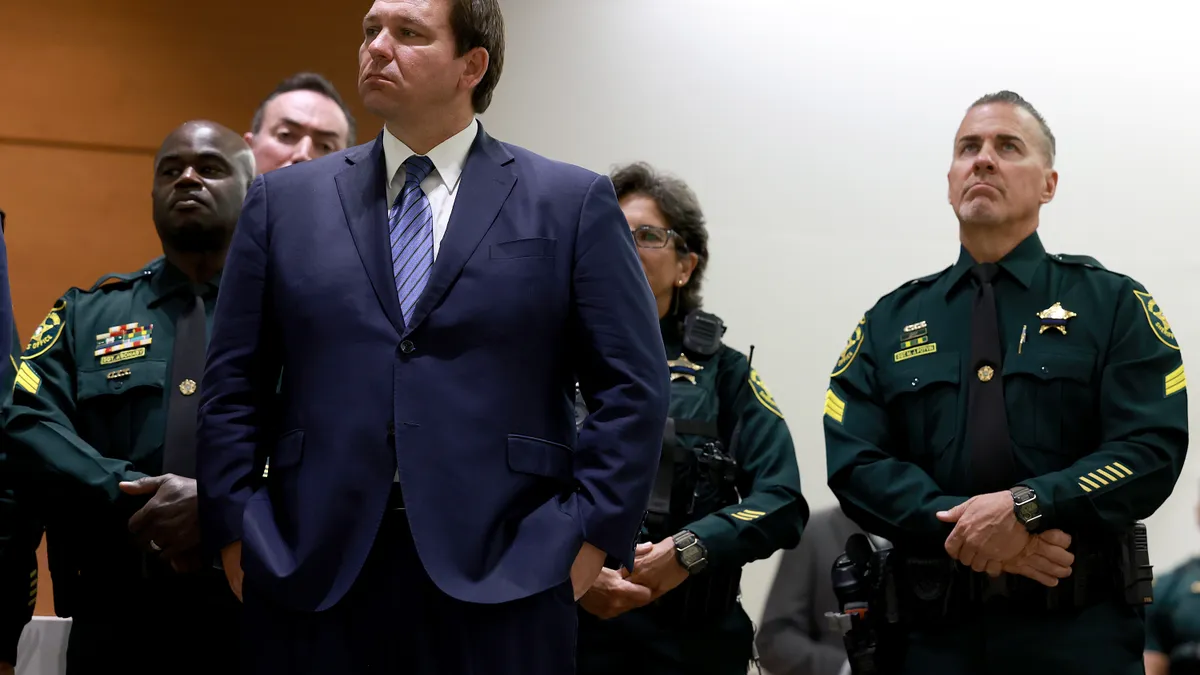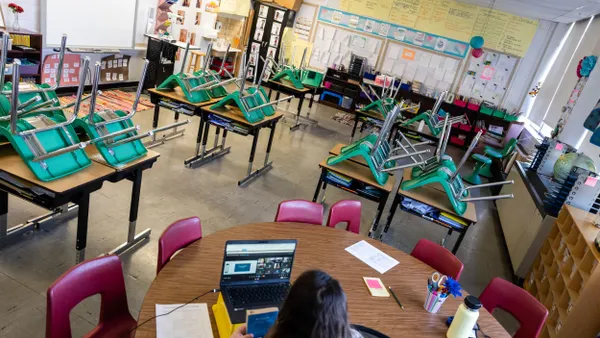Dive Brief:
-
The American Civil Liberties Union, ACLU of Florida, Legal Defense Fund and Ballard Spahr, a national law firm, filed a suit Thursday against Florida's Stop Wrongs Against Our Kids and Employees (WOKE) Act, claiming it is “racially motivated censorship” restricting Florida educators and students from discussing issues related to race and gender in college classrooms.
-
Lawyers are gearing up to litigate the legislation's fallout for K-12 schools, as well. "We and other groups are looking into the K-12 aspects [of the law]," said Jerry Edwards, staff attorney with the ACLU of Florida, during a press briefing. The upcoming litigation will depend on parents’ complaints and how school districts implement the law. "So right now, we're kind of in a 'wait-and-see’ approach," Edwards said.
-
Lawyers "are looking for many of the same effects" in K-12 as in higher ed, said Leah Watson, senior staff attorney with the ACLU Racial Justice Program, but they may show up "more acutely in the classrooms." Among the things lawyers are keeping an eye out for are removed textbooks.
Dive Insight:
Florida's Stop WOKE Act, which bans what proponents call "critical race theory" in schools, was introduced in late 2021 and took effect July 1. “In Florida, we are taking a stand against the state-sanctioned racism that is critical race theory,” said Gov. Ron DeSantis in a statement when he announced the legislation. “We won’t allow Florida tax dollars to be spent teaching kids to hate our country or to hate each other.”
However, those challenging the law say it's an effort to limit discussions of systemic racism in the classroom. "We should all be very deeply concerned about laws that restrict academic freedom and the right to information in this way," said Morenike Fajana, assistant counsel for the Legal Defense Fund, during the Thursday press briefing.
While the higher ed lawsuit progresses and a lawsuit challenging K-12's application of the law is expected, educators are left to navigate what lawyers call the law's "vague" terms.
"But when teachers don't know where the line is and school administrators don't know where the line is, they err on the side of caution, which is really detrimental to students," Watson said. "So we see texts changing, instruction changing."
One school district in Texas, for example, has seen the removal of books like "The Bluest Eye" by Toni Morrison, a version of Anne Frank’s “The Diary of a Young Girl,” and the Bible. In Florida, over 50 math textbooks were rejected due to issues with social-emotional learning and race-related material.
Lawyers, social studies experts, and even the White House have called classroom censorship laws a concerning nationwide trend.
In 2022, 36 states introduced 137 bills seeking to restrict instruction on topics like race, gender, sexuality and U.S. history in K-12 and higher education, according to a report released Wednesday by PEN America, a nonprofit tracking state legislation described as “educational gag orders.” That marks a 250% increase from 2021, when 22 states introduced 54 similar bills.
Edwards said lawyers feel uncomfortable offering teachers legal advice "because of how unclear this law is and how big it is."
"And so, I would say to the teachers, ‘Do whatever you're comfortable doing,’" Edwards said. "And if that means changing your curriculum or your lesson plans — if that's what you feel you have to do, then it's what you feel you have to do.












